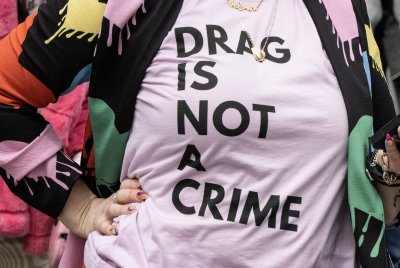
Aug. 19 (UPI) — A federal appeals court barred West Texas A&M University from enforcing a ban on drag shows on campus, overruling a lower court’s decision that said drag shows did not necessarily enjoy First Amendment protections.
The three-judge panel of the U.S. Court of Appeals for the Fifth Circuit ruled 2-1 in favor of the LGBTQ+ Spectrum WT student group and two of its student leaders who sued the school in March 2023, after university president Walter Wendler unilaterally canceled their then-upcoming charity drag show by arguing such performances were comparable to blackface and against his religious beliefs.
The appeals court ruling puts a hold on Wendler’s ban, allowing the student group to host drag shows on campus amid litigation.
“FIRE is pleased that the Fifth Circuit has halted President Wendler’s unconstitutional censorship and restored the First Amendment at West Texas A&M,” JT Morris, supervising senior attorney at the Foundation for Individual Rights and Expression, which filed the lawsuit, said in a statement.
“This is a victory not just for Spectrum WT, but for any public university students at risk of being silenced by campus censors.”
In March 2023, Spectrum WT was planning a drag show for adults on West Texas A&M University to raise money for the Trevor Project, an LGBTQ+ suicide prevention and crisis intervention nonprofit — but was barred from hosting the event by Wendler, who issued a ban on drag shows.
In a March 21, 2023, letter to students, Wendler stated he believes humans are created in God’s image and that drag shows do not preserve human dignity.
“As a performance exaggerating aspects of womanhood (sexuality, femininity, gender), drag shows stereotype women in cartoon-like extremes for the amusement of others and discriminate against womanhood,” he said.
“Drag shows are derisive, divisive and demoralizing misogyny, no matter the stated intent,” he continued. “Such conduct runs counter to the purpose of WT.”
Spectrum WT then sued the school and held its performance off campus.
Before the court, Wendler argued that drag shows are not express conduct protected by the First Amendment right to free speech, and that drag shows should be restricted due to lewd conduct.
In September, the lower court agreed with Wendler that not all drag shows are inherently expressive and entitled to First Amendment protections, finding Wendler was right to cancel the performance because of “potential lewdness.”
Writing on behalf of the majority, Circuit Judge Leslie Southwick, a President George W. Bush appointee, said the district court erred by concluding the student group was not likely to succeed on the merits of their First Amendment argument.
“Because theatrical performances plainly involve expressive conduct within the protection of the First Amendment, and because we find that plaintiffs’ drag show is protected expression, discrimination among such shows must pass strict scrutiny,” Southwick said in the ruling.
“President Wendler did not argue, either before the district court or on appeal, that restricting the intended drag show would survive strict scrutiny.”
Southwick also found that the group suffered ongoing irreparable injury to their free speech First Amendment rights as Wendler had canceled their planned show and would permit no future shows going forward.
Circuit Judge James Ho, a Trump appointee, in dissent agreed that drag shows are not inherently expressive and that if universities allow men to act as women in campus events, such as drag shows, “they may feel compelled to allow men to act as women in other campus events as well — like women’s sports.”
“What a university allows in an auditorium, it might have to allow on an athletic field, too.”
UPI has contacted West Texas A&M University for comment.